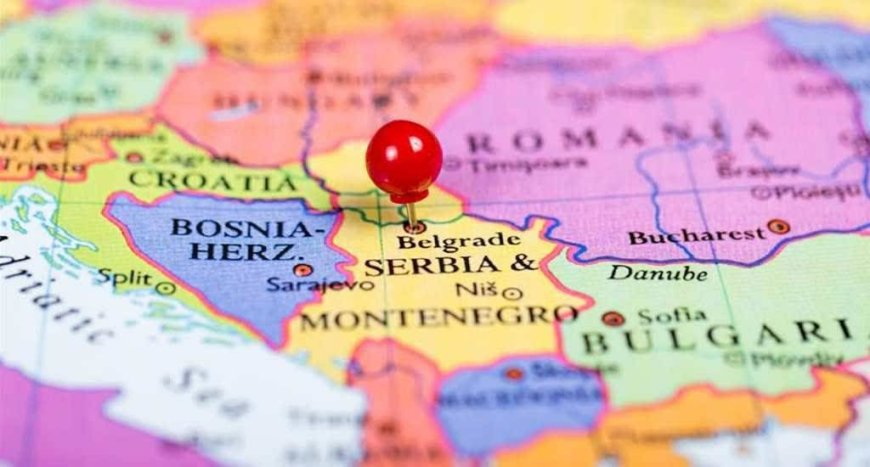The Russo-Ukrainian Conflict and its Impact on Security Priorities in the Balkans: The Geopolitical Contest between the West and Russia
The Russo-Ukrainian Conflict and its Impact on Security Priorities in the Balkans: The Geopolitical Contest between the West and Russia

The Kosovo crisis, which occurred last year and created widespread tension between Serbia and Kosovo, was initially eased through the intervention of the European Union. However, during recent elections, this divide resurfaced as the Serbian population objected to the election outcomes, leading to a boycott and mass resignations from government positions. As a result, the affected areas descended into chaos and conflict, resulting in casualties among NATO troops and peacekeeping forces. Analysts argue that the Serbian protests, influenced by Russian interests, indicate Moscow's intervention in the region to generate instability and relieve political and economic pressures on itself.
Russia seeks to dismantle barriers to its accession into the European Union, presenting significant challenges to the parties involved in the Ukrainian conflict. Nevertheless, it seems that the European Union and the United States are unwilling to exacerbate tensions. Their positions and pressure exerted on Kosovo demonstrate a reluctance to engage in Russia's actions. Consequently, the autonomous republic has been compelled to agree to repeat municipal elections in its northern cities. The European Union is committed to addressing the underlying causes of the Balkan crisis and aims to entice these countries into its fold. Although Mrs. Van der Leyen's plan lacks specificity and faces skepticism from some, it represents the European Union's concerted efforts to establish closer ties with the Western Balkans.
In addition to efforts to resolve the Serbia-Kosovo conflict, a meeting held in Brussels under the European Union's auspices failed to produce tangible results, highlighting the need for continued dialogue and pressure from influential powers in the region. Prolonged delays in these discussions may lead to military conflict. This situation could potentially benefit Moscow, as the gray zone, which serves as an indirect battleground, still allows for maneuverability and opportunities for gains. Given Russia's influence over Serbia and its status as a significant power in the region, it can actively participate in the dialogue process, break free from isolation, and become a crucial player in the Balkan conflict. Achieving this objective is likely to generate further conflicts in the Balkans, with Russia using proxy influence to relieve pressure and strengthen its bargaining power.
The Balkans have become a new arena for geopolitical competition between the West and Russia. Despite a period of relative calm following previous crises, the region, characterized by deep-seated ethnic, cultural, and religious conflicts, is once again entangled in power struggles. The primary victims in this scenario are likely to be the people of the region and their weakened governments. The potential for another migration crisis looms large, depending on the interactions between Western powers and Russia, as well as their approaches to resolving conflicts in the region. The question arises as to whether diplomacy and dialogue will prevail or if confrontational rhetoric and war will ultimately dominate, and whether the interests of the people will surpass those of the major powers.













































